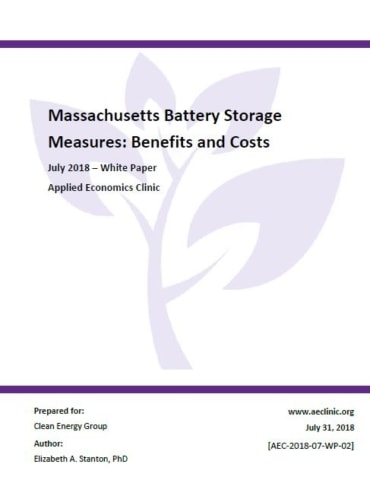Massachusetts Battery Storage Measures: Benefits and Costs
July 31, 2018
Applied Economics Clinic | Clean Energy Group
Clean Energy Group (CEG) commissioned this white paper to determine the performance of behind-the-meter battery storage in a Total Resource Cost (TRC) cost-benefit analysis, for both commercial and low-income applications. Efficiency measures scoring above 1 on the test are eligible for inclusion in the energy efficiency programs of states, like Massachusetts, that use the TRC test.
CEG contracted with Liz Stanton of the Applied Economics Clinic to perform the analysis and write the report on the findings. For both applications, the report concludes that battery storage systems installed behind the customer meter pass the TRC cost-effectiveness test, with benefit-cost ratio scores of 2.8 for low income, and 3.4 for commercial storage. This is significant because it shows, for the first time, that battery storage can be deployed as a cost effective energy efficiency technology, potentially qualifying for incentives through energy efficiency programs in many states. This work was supported through generous grants from the Barr Foundation and the Merck Family Fund.





